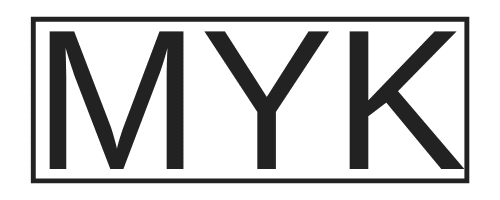5 Time Management Hacks for Freelancers to Boost Productivity
As a freelancer, time management can be a significant challenge. You have limited time and resources, and you must manage your time effectively to stay on top of your workload and meet your client’s expectations. However, it’s not about the efficient use of your time; instead, it’s about how effectively you stay focused on the critical tasks that drive results. It’s about identifying the key activities that will make you successful and spending all your time focusing on the key levers that will help you achieve your goals. Everything else is just a waste of time.
In this article, we’ll explore some time management hacks for freelancers that will help you boost your productivity and achieve more in less time.
5 Time Management Hacks
1 – Define Your Key Drivers of Success
The first step to effective time management is defining your key success drivers. This means identifying the tasks and activities most significantly impacting your business and clients. For freelancers, this might include client work, marketing, networking, and professional development. By focusing your time and energy on these critical drivers of success, you can achieve more in less time and make the most of your limited resources.
Ask Your Self The Following Key Questions
- What 3 Activites Drive Revenue?
- If I stopped doing anything else, what three activities should I continue to do to ensure my success?
2 – Define Your Only Do List
Once you’ve identified your critical drivers of success, it’s time to create your Only Do List. This is not your daily to-do list with all the activities you “must” do to feel productive. This is your clearly defined list of critical activities that actually produce results.
Work as a freelancer can be split into two activities:
- Finding clients
- Producing a product/service
These two activities drive all of the money you make and are fundamental to your ability to succeed.
3 – Define Your Not To Do List
The world is filled with distractions, and it can be easy to let yourself get drawn into activities that don’t drive success. Distraction is the key reason why people fail to achieve their goals. They spend their time on activities that don’t help them to achieve their goals.
So, in addition to your Only Do List, you should create a Not To Do List of things you won’t do anymore because they don’t directly impact achieving your goals.
Ask Your Self The Following Key Questions
- What activities do I do daily that are time fillers?
- What activities do I do that don’t directly contribute to my success?
4 – Time Management System
We’re all flawed humans at heart; no matter how motivated we may be in the moment, we are weak. Don’t depend on willpower to stay focused. You will stray. Instead, develop and use a system that works for you. Some popular methods include the Pomodoro Technique, Time Blocking, and even using an app such as Trello or Asana to organize tasks and activities better. There are a ton of great apps for freelancers that will help you implement these systems.
Pomodoro Technique
Pomodoro is a well-known time management system that encourages 25 minutes of focused effort followed by 5-minute pauses. Providing brief breaks throughout the day significantly reduces the risk of burnout and helps maximize productivity.
- Step 1: Devote yourself to one task for 25 minutes without interruption.
- Step 2: Take a 5-minute break to stretch and unwind.
- Step 3: Rededicate yourself to your work for 25 minutes, then take a well-deserved 5-minute break. To further reward yourself, extend the duration of every fourth pause by 15-30 minutes!
Time Blocking
Structuring your day with a time-blocking system will sharpen your focus and help you achieve more in fewer hours. Setting aside particular periods for specific tasks allows you to maximize productivity and get the most out of each day.
- Step 1: Create a list of the tasks that you do regularly.
- Step 2: Gauge the time you must devote to each job and block out time in your calendar for these tasks.
- Step 3: Set aside time for interruptions and unknowns.
- Step 4: Make the most out of your spare time by using it to tackle your unfinished tasks.
Getting Things Done
If you’re looking to maximize your productivity, look no further than Getting Things Done – it’s a time management system created by David Allen in his book “Getting Things Done: The Art of Stress-Free Productivity.”
- Step 1 – Capture: Create a list of your essential to-dos and project management tasks for efficient monitoring.
- Step 2 – Clarify: Carefully analyze your to-do list and consider dropping or postponing any jobs you don’t need to do.
- Step 3 – Organize: Organization is key! Streamline your workload by sorting it into groups of importance, and be sure to assign due dates, so you never miss a deadline.
- Step 4 – Reflect: Continuously assess your task list and identify each item’s next steps and subtasks.
- Step 5 – Engage: Make it a habit to review this daily checklist and focus on completing tasks throughout the workday for greater efficiency.
Bullet Journaling
Bullet Journal is an efficient way to keep track of daily tasks and information. Using symbols and letters, you can quickly distinguish if a job has been completed, postponed, or removed. Streamlining day-to-day errands with this system allows for better organization in your personal life!
- Step 1: To begin, secure a journal that includes page numbers. Subsequently, assign an appropriate work-related title to each page in your journal.
- Step 2: Under every heading, you can indicate individual responsibilities (•), occurrences (◦), and reminders (-).
- Step 3: Depending on the status of a task, you can denote it as completed (X), moved to another project (>), delayed (<), or removed from consideration (•).
- Step 4: Give your bullets more relevance by adding symbols! For instance, a star (*) means “priority,” and an exclamation point (!) infers excitement.
- Step 5: Group similar entries together with collections to stay organized and keep your data neat.
5 – Continuous Improvement
The key to real success is not perfection but persistent, incremental improvement. Most people must realize that success is a continuous journey, and you should always look to improve your processes and systems. Track how well you are adhering to your processes. Every six months, take the time to review how well you did. What worked well and what didn’t? Adjust your approach to better fit your current needs.
The more you hone these tools, the more productive and successful you will be both personally and professionally.
Continuous Improvement Tools
You can use many tools and techniques to improve your time management skills. Some popular ones include:
- Creating Self-Audit Reports
- Tracking Your Progress With A Journal
- Using The 80/20 Rule To Focus On High-Impact tasks
FAQ
What are the benefits of time management?
The benefits of effective time management include increased productivity, improved focus, and fewer feelings of stress and overwhelm. It can also help improve your relationships with others and enhance overall job performance and satisfaction.
What are the four keys to time management?
The four keys to effective time management are: setting goals, developing a plan, creating an “only-do list,” and establishing a system. Setting goals helps to keep you focused and motivated while developing a strategy, and making an only-do list helps ensure that your activities are aligned with your goals.
What is a freelancing job?
Freelance jobs are contract work for an individual or business. They are typically short-term projects, and the freelancer is usually paid per project or upon job completion. Freelancers often have control over their schedule and rate of pay and can take on multiple clients at any time.
What are freelancing examples?
Examples of freelance work include web design, freelance writer, graphic design, virtual assistant services, SEO, social media management, and web development. Jobs can be found on freelance platforms like Fiverr, Upwork, and Freelancer.com.
Which skill is best for freelancing?
The best skill for a freelance career will depend on your skills. Most freelancers focus on location-independent skills that can be developed through self-directed learning. Freelance jobs like web design, graphic design, copywriting, content writing, video production, and virtual assistant services are excellent skills for aspiring freelancers.
What is a freelance job?
Freelance work is similar to work done by independent contractors. Freelance workers complete projects or tasks and are usually not employed full-time. A freelance job typically entails working on a project with a specific deadline, with the position’s payment dependent upon completion.
How is a freelancer paid?
A freelancer is paid directly by clients. Several methods to get paid as a freelancer include direct bank transfer, Wise, PayPal, and other online payment methods. Some clients also use services such as Upwork or Fiverr to pay freelancers, which can provide an additional layer of security against fraudulent payments.
Is freelancing lucrative?
Freelancing can be very lucrative. However, freelancing is like being self-employed, where your money is directly related to the number of hours and type of work you put in. The more you focus on networking and building your portfolio, the more opportunities will come your way, and the more money you can make. Many freelancers start out working for themselves using freelancing websites and then slowly develop a network of clients and graduate into running a freelance business.
How much does a freelancer get paid?
Freelancers who produce quality work and take on well-paying projects can make a great living. They maintain a happy work-life balance while being their own boss. As independent contractors, they determine their pricing when they negotiate the price of their services with a business owner.
Final Thoughts
Time management is an essential skill for any freelancer to master. By setting goals, developing a plan, creating an only-do list, and establishing a system, you will be better able to stay focused, organized, and productive in your daily work. Additionally, understanding the different types of freelance jobs available and what skills are best for freelancing can help.







